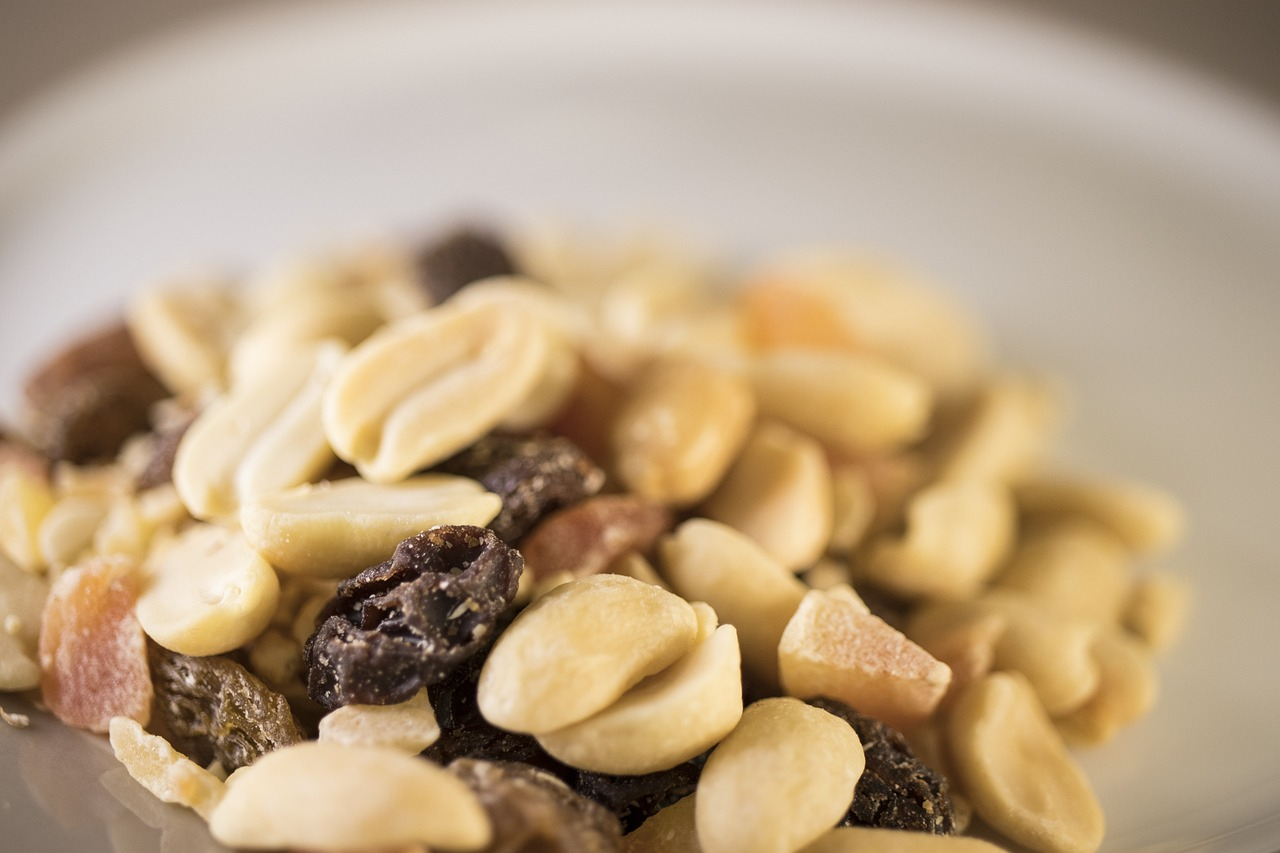Understanding How Much Protein You Need to Build Muscle
Embarking on a muscle-building journey demands more than just pumping iron at the gym, it requires a well-defined strategy that takes into account the right nutrition. In the article, “Understanding How Much Protein You Need to Build Muscle,” you’ll gain insight into the significance of protein intake for muscle growth and learn precisely what your body requires. This piece will guide you through the essential building blocks of your body, offering you answers to your vexing questions about protein and muscle building. So, brace yourself to unravel some eye-opening revelations!

Understanding Protein and its Role in Muscle Building
When it comes to muscle building, protein often comes to mind first. It is indeed a crucial element, but do you actually know what protein is and what it does? So let’s dive deeper.
Overview of What Protein Is
Protein is a macronutrient like carbohydrates and fats, which are essential for your body to function properly. The molecules are composed of amino acids, which are often referred to as building blocks. There are 20 different types of amino acids and your body can produce 11 of them. The remaining nine are known as essential amino acids, which have to be obtained from your diet. These amino acids combine in various ways, folding into complex shapes to form different proteins that serve different functions.
Importance of Protein in Muscle Formation
Protein plays a significant role in muscle formation. When you engage in physical activity, especially resistance and strength training, muscle fibers experience damage. Your body then responds by repairing these damaged fibers. This process is primarily driven by a cellular mechanism where damaged muscle tissues are replaced or repaired, leading to muscle growth. In short, protein serves as the primary building block for muscle tissue.
How Proteins Assist in Muscle Repair
When you work out, especially during strength and resistance training, muscle fibers are broken down, causing micro-tears. This is where protein jumps into the rescue. The repair process involves laying down new protein strands to heal the damage. The more strenuous the exercise, the more damage and consequently, the more repair is needed, calling for more protein.
Daily Protein Requirement
Your daily protein requirement is affected by factors including age, gender, weight, and activity levels. Let’s break it down.
Ideal Protein Consumption for Average Individuals
An average adult should ideally consume about 0.8 grams of protein per kilogram of body weight each day. So, if you’re weighing 70 kilograms, your daily protein intake would need to be about 56 grams.
Additional Protein Requirements for Athletes or Bodybuilders
For individuals involved in demanding physical activities like bodybuilders, endurance athletes, or those looking into muscle gain, the protein requirement surges. Health experts and fitness coaches often recommend consuming between 1.6 to 2.2 grams of protein per kilogram of body weight.
Consequences of Insufficient Protein Intake
Insufficient protein intake can hinder muscle recovery and growth, weaken your immune system, and even impair basic body functions. It might lead to muscle wasting, weakness, fatigue, and a host of other health problems.

Protein Sources and Quality
Protein comes in various forms and from various sources, the quality of which can impact the muscle-building process.
Animal-Based Protein Sources
Animal protein sources are usually complete sources, meaning they contain all the essential amino acids that your body needs. These include poultry, beef, fish, eggs, milk, cheese, and other dairy products.
Plant-Based Protein Sources
Plant-based proteins are often incomplete, meaning they lack one or more essential amino acids. However, combining different plant sources such as beans, lentils, whole grains, nuts, seeds, and certain vegetables can help you get all the essential amino acids.
Impact of Protein Quality on Muscle Building
The quality of protein you consume affects the muscle-building process. High-quality proteins, which have an ample amount of all essential amino acids and are digestible, support muscle growth more effectively.
Assessing Your Protein Needs for Muscle Building
Several factors influence your protein needs for muscle building.
Influence of Your Current Body Composition
The more muscle mass you have, the greater protein needed for maintenance. If you’re lean and want to put on muscle, your protein needs increase.
Effect of Your Exercise Regimen
Different exercise regimens demand different protein requirements. Strength training activities typically require more protein for muscle repair and growth compared to other activities like endurance training.
Incorporating Rest Days and Protein Intake
Rest days are when the magic happens; muscles repair, recover, and grow. The protein requirement remains high on rest days as protein synthesis peaks during this time.

Calculating Your Specific Protein Needs
Calculating your specific protein needs can be fundamental to proper muscle growth.
Commonly Used Methods to Calculate Protein Intake
The most common method is to calculate based on your body weight as mentioned earlier. In some cases, calculations might include your lean body mass for more accuracy.
Examples of Protein Calculation
Let’s say you weigh 70 kilograms and are an avid weight lifter. Using the suggested intake of 1.6 to 2.2 grams per kilogram, you’d need about 112 to 154 grams of protein daily.
Timing of Protein Intake
When you consume protein can also influence its muscle-building ability.
Pre-Workout Protein Intake
Consuming protein before your workout session can offer amino acids needed to support muscle synthesis during the workout itself.
Post-Workout Protein Intake
Post-workout is considered an optimal time for protein consumption. This is when muscle breakdown is high, and supplying protein helps initiate the repair and recovery process.
Effects of Protein Timing on Muscle Building
Strategic timing of protein intake can enhance muscle protein synthesis and aid in more effective muscle growth and recovery.

Importance of Other Nutrients in Muscle Building
Building muscle isn’t all about protein. Other nutrients also play crucial roles.
Role of Carbohydrates
Carbs are your body’s primary fuel source. They provide the energy needed to power through strength training workouts.
Impact of Fats
Fats support numerous bodily functions, including nutrient absorption and hormone production, both of which are crucial for muscle growth.
Nutrition Balance and Total Calories
For effective muscle building, maintain a balance of nutrients and ensure you’re eating enough total calories. Without adequate caloric intake, your body might use protein for energy rather than muscle synthesis.
Risks and Misconceptions about Protein Supplementation
Like any other nutrients, too much or misuse of protein supplements can push risks.
Potential Health Risks of Excessive Protein Intake
Excessive protein intake is not only unnecessary but might strain your kidneys and liver, and lead to digestive issues.
Common Myths about Protein Supplements
One common myth is that protein supplements alone can boost muscle growth. In reality, protein supplementation has to work hand in hand with strength training and balanced nutrition to produce results.
Practical Tips to Increase Protein Intake
Here are practical tips to hit your daily protein needs.
Using Protein Supplements
Protein powders, shakes, and bars can help fill in the gaps when intense training and muscle-building are your goal.
Incorporating High-Protein Foods in Diet
Include various high-protein foods in your diet. Mix and match plant-based and animal-based proteins for variety and a full amino acid profile.
Ensuring Adequate Protein Absorption
To ensure adequate protein absorption, spread your protein intake throughout the day rather than consuming large amounts at once.
FAQ around Protein and Muscle Building
Let’s address some common questions around protein and muscle building.
Is it possible to build muscle without protein supplements?
Yes, it is indeed possible through high-protein foods. Protein supplements simply offer a convenient way of reaching protein goals when needed.
How long does it take for protein to build muscle?
Muscle gain varies from person to person and depends on numerous factors, like the type and intensity of strength training, and nutritional intake. Consistency is key.
Can I consume too much protein?
There can be too much of a good thing. As mentioned earlier, excessive protein intake can lead to potential health risks. Stick to recommended intakes and consult with a certified nutritionist or dietitian for personalized advice.
And there you have it. You’re now more knowledgeable about protein and its role in muscle building. Now go ahead and pump up those muscles, responsibly!


Pingback: The Ultimate Guide: How Much Protein to Build Muscle Calculator – Lose Weight With Absolute Minimal Diet – Your All In One Guide to Weight Loss & Nutrition